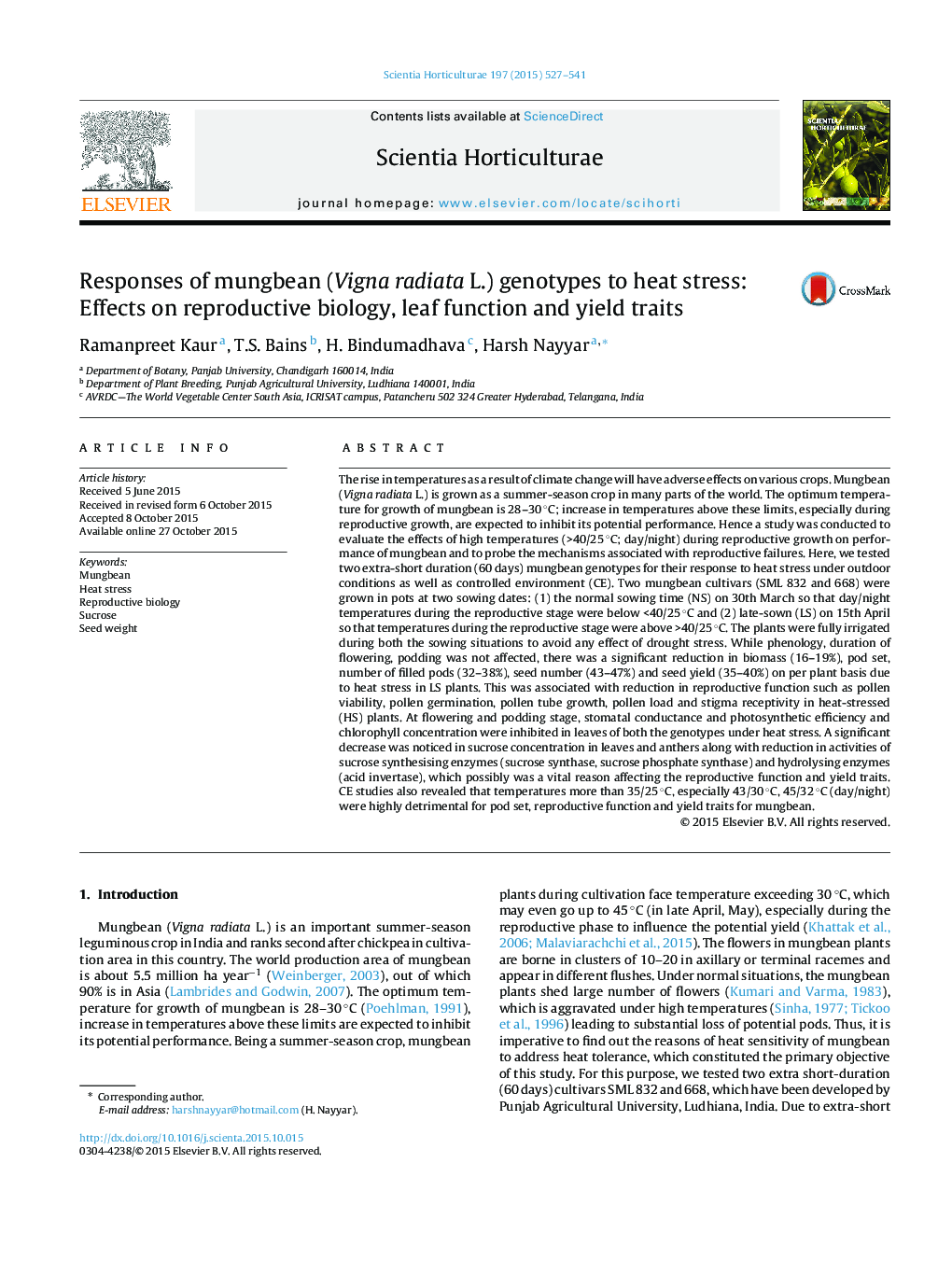| کد مقاله | کد نشریه | سال انتشار | مقاله انگلیسی | نسخه تمام متن |
|---|---|---|---|---|
| 6406864 | 1628801 | 2015 | 15 صفحه PDF | دانلود رایگان |

- Heat stress in late-sown plants resulted in drastic damage to growth, pod set and yield of mungbean genotypes.
- High temperatures were particularly damaging to reproductive function leading to abortion of flowers and pods.
- Sucrose metabolism in leaves and anthers was impaired significantly, which was associated with inhibition of reproductive function and yield.
The rise in temperatures as a result of climate change will have adverse effects on various crops. Mungbean (Vigna radiata L.) is grown as a summer-season crop in many parts of the world. The optimum temperature for growth of mungbean is 28-30 °C; increase in temperatures above these limits, especially during reproductive growth, are expected to inhibit its potential performance. Hence a study was conducted to evaluate the effects of high temperatures (>40/25 °C; day/night) during reproductive growth on performance of mungbean and to probe the mechanisms associated with reproductive failures. Here, we tested two extra-short duration (60 days) mungbean genotypes for their response to heat stress under outdoor conditions as well as controlled environment (CE). Two mungbean cultivars (SML 832 and 668) were grown in pots at two sowing dates: (1) the normal sowing time (NS) on 30th March so that day/night temperatures during the reproductive stage were below <40/25 °C and (2) late-sown (LS) on 15th April so that temperatures during the reproductive stage were above >40/25 °C. The plants were fully irrigated during both the sowing situations to avoid any effect of drought stress. While phenology, duration of flowering, podding was not affected, there was a significant reduction in biomass (16-19%), pod set, number of filled pods (32-38%), seed number (43-47%) and seed yield (35-40%) on per plant basis due to heat stress in LS plants. This was associated with reduction in reproductive function such as pollen viability, pollen germination, pollen tube growth, pollen load and stigma receptivity in heat-stressed (HS) plants. At flowering and podding stage, stomatal conductance and photosynthetic efficiency and chlorophyll concentration were inhibited in leaves of both the genotypes under heat stress. A significant decrease was noticed in sucrose concentration in leaves and anthers along with reduction in activities of sucrose synthesising enzymes (sucrose synthase, sucrose phosphate synthase) and hydrolysing enzymes (acid invertase), which possibly was a vital reason affecting the reproductive function and yield traits. CE studies also revealed that temperatures more than 35/25 °C, especially 43/30 °C, 45/32 °C (day/night) were highly detrimental for pod set, reproductive function and yield traits for mungbean.
Journal: Scientia Horticulturae - Volume 197, 14 December 2015, Pages 527-541